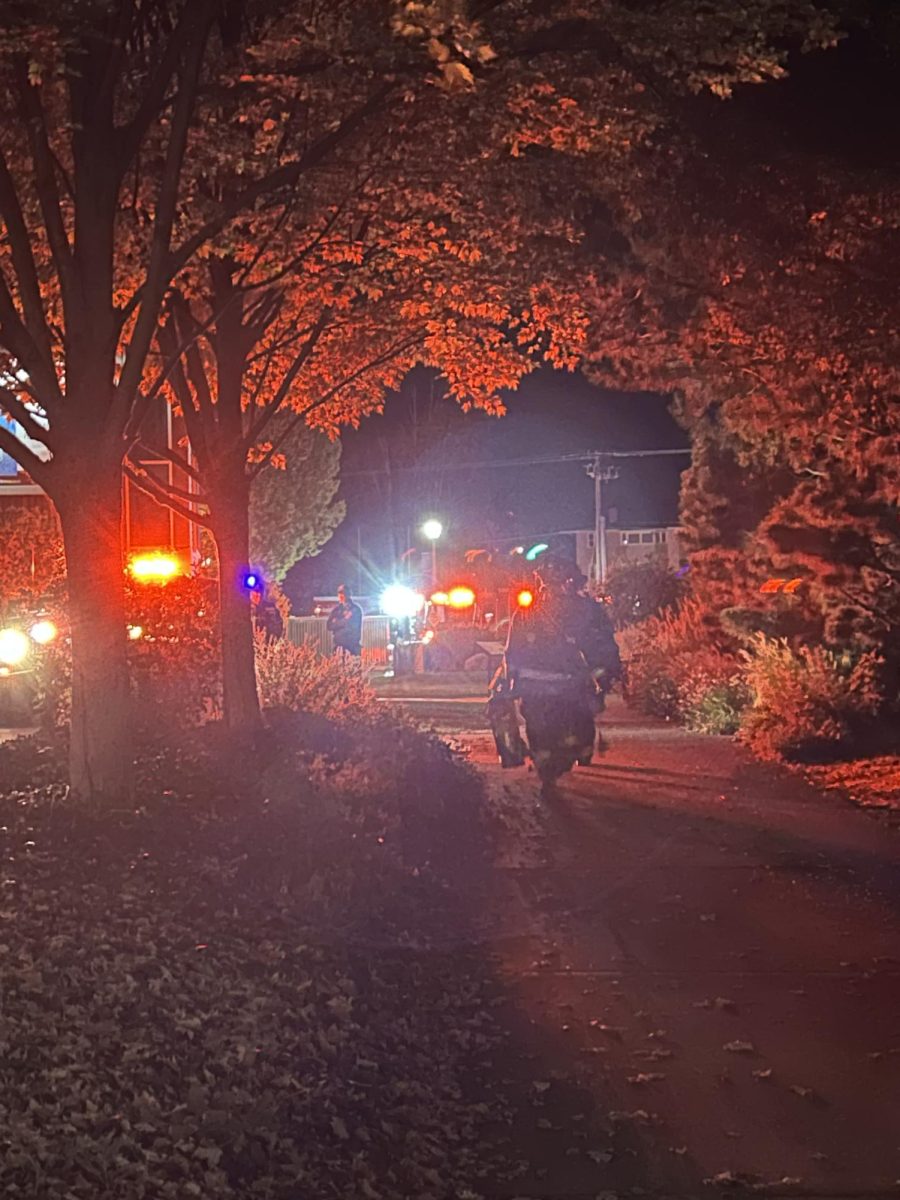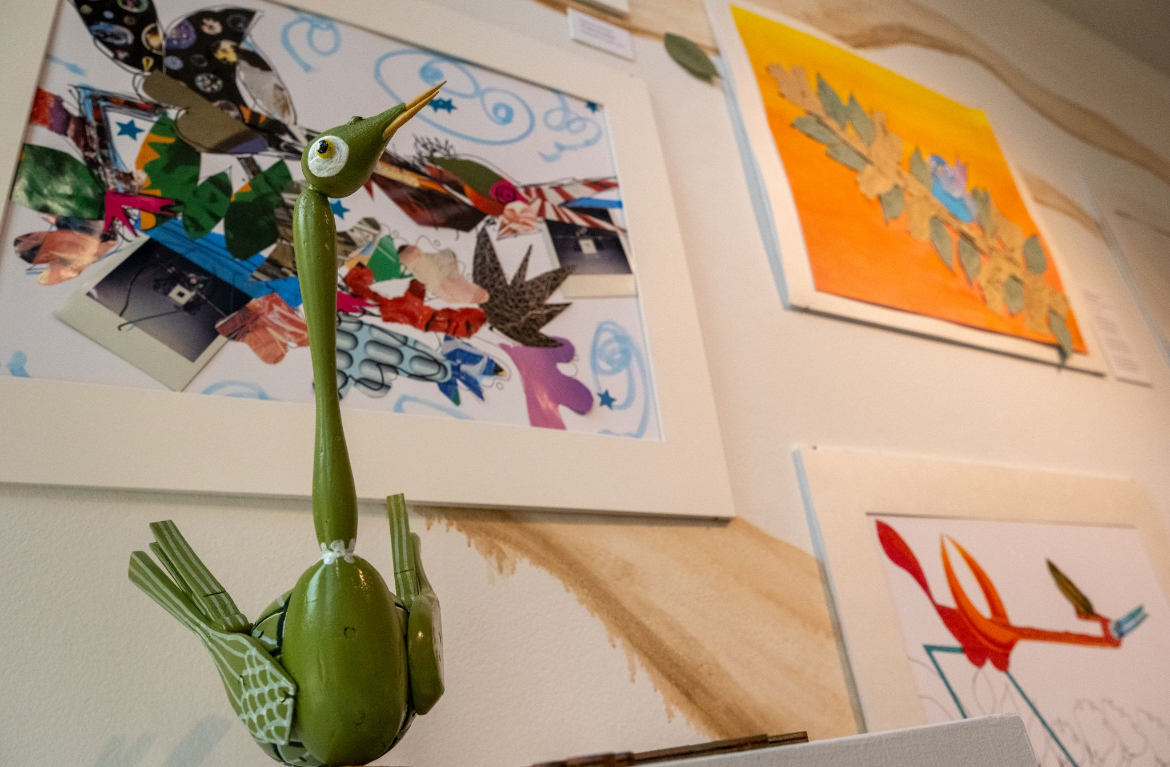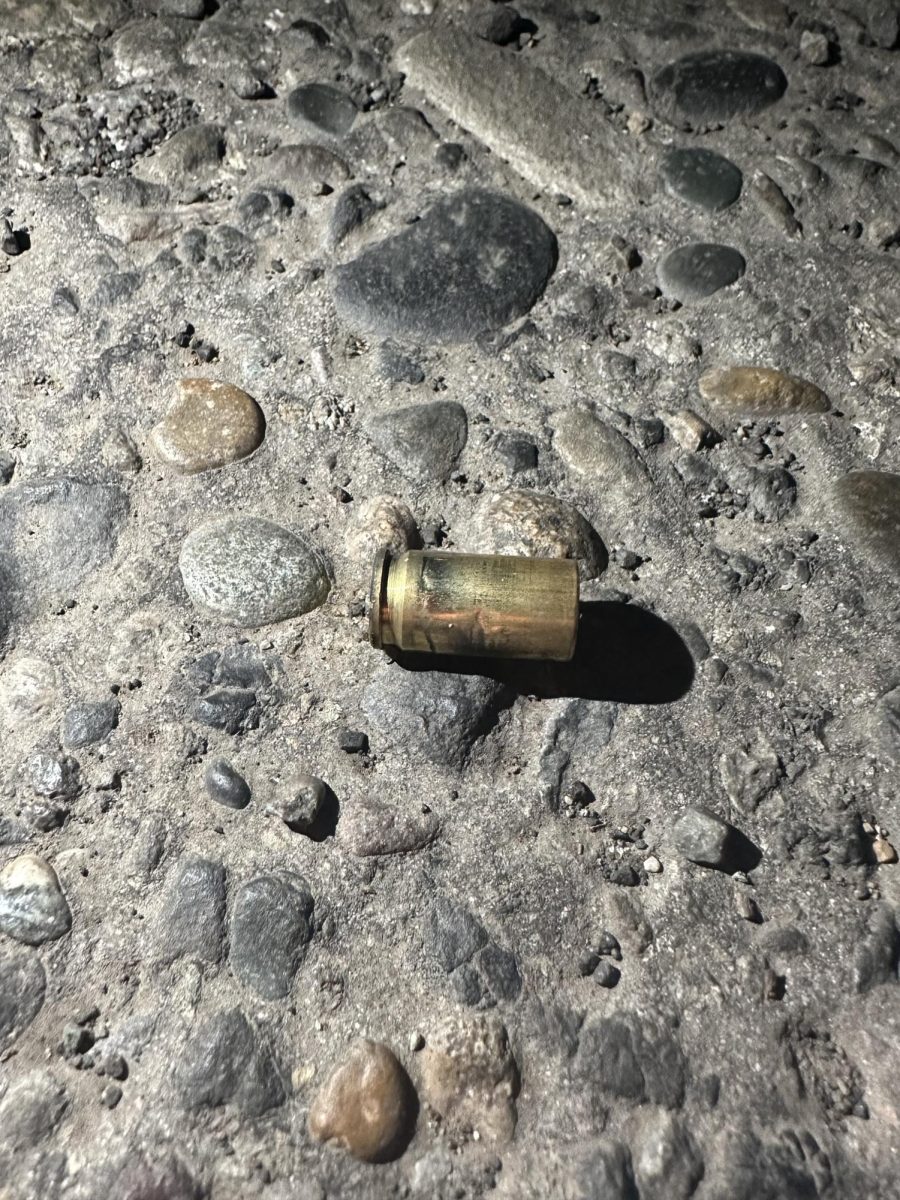The annual Power and Privilege (P&P) Symposium was held on Thursday, Feb. 22. As usual, classes were canceled to encourage members of the Whitman community to attend the presentations. This year, there were 10 presentations by students, faculty and Walla Walla community members covering a wide range of topics. Although the Symposium is held on a single day, several additional events preceded and concluded the event.
Both presenters and organizers encourage continued engagement with their topics beyond P&P. Junior P&P presenter Ava Brenkman’s presentation was a panel discussion titled “Dismantling the Chains: Unmasking Systematic Oppression in Mass Incarceration.” In addition to discussing systematic issues, Brenkman also explained how she began working with formerly incarcerated individuals.
“This past summer, I worked with those formerly incarcerated, those in the community trying to find jobs and housing. So that’s what I did for an internship over this past summer. And that then led to working on the inside of the penitentiary here,” Brenkman said.
She continued discussing what she hoped were the biggest takeaways from her audience.
“What I found is that if I talk, and I share the stories of what I’ve done on the inside and outside, it doesn’t really get anywhere. But if I bring someone in here, who is an amazing human that is reformed, that has been affected by the justice system, and you hear from their voice, you’re going to be moved. And I think that’s exactly what happened. And that’s exactly what I was hoping to happen,” Brenkman said. “I wanted the message to get across to people is that those that have been affected by the justice system or who are incarcerated are people just like you.”
Brenkman sent out a Google form open to students who may be interested in getting involved with the local penitentiary and incarcerated people’s rights. The form received a substantial number of responses and Brenkman is now in the process of organizing meetings and volunteer opportunities for the interested parties. Additionally, she acknowledged challenges in involving people with the incarcerated community, such as navigating the system’s requirements like background checks and extensive paperwork.
Seniors Zakir Hussain and Dante Filippetto conducted a presentation at P&P entitled “Attention Beyond Attendance: Let’s Start with Palestine.” They discussed how modifying the form of P&P is an example of a change that can potentially lead to sustained engagement.
“One other thing that even if I’m not talking about, like, sustained [engagement] as in continuous make it about our whole life, to talk about these issues. And like, talking about it every day, there are some obvious questions. Why is [P&P] once a year? Why is it not a few times a year? Why is it not a few times a semester? It’s very obvious questions that could pave the way for changing the format, or the form or the structure,” Hussain said.
Filippetto discussed how connecting the symposium to other settings and events on campus could serve as a way to continue the conversations presented on P&P day.
“Changing the form would be one way of changing the way that people think about their engagement with P&P. It could just be one day that is then connected to a series of other events that other things on campus then relate to. And maybe that web of things that are more explicitly connected, would then change people’s engagement. That’s just one example. I think it would inherently change things,” Filippetto said.
Hussain and Filippetto mentioned that they hope the audience decides the roles they want to play in creating a continued conversation around Palestine.
“I think that’s for them to decide. That was part of our desire for the presentation was less to show up and say, “Oh, this is what you need to do to have sustained engagement.” Rather, these are some ways that maybe a lot of people are engaging with P&P … And then left the question open-ended … I would love to see what people come up with. People here, people everywhere are brilliant, but there are a lot of brilliant people at this campus,” Filippetto said.
Hussain echoed a similar position highlighting the need for collective engagement.
“As presenters from Students for Justice in Palestine, our focus is limited and our knowledge is limited. And that’s why the question should be open-ended. Even if it’s not from us, I think the question should always be open-ended. But we did end on a note of collectivity … We ended on a note of opening up to any group. We are working currently, in SJP, … on making a collective voice to be heard by people in power,” Hussain said.
For Senior P&P Executive Director Brandon Martínez Serrano, ensuring that the executive team organized the event around three demands, with an emphasis on meaningful cross-campus collaboration was key.
“Many of the things that I tried to address were issues or were dynamics that would affect different communities, different offices on campus, different people, rather than try to cherry-pick some of the individual issues, because as our guest speaker, Linda Sarsour, said we can always find ways to empathize with people, we can always find some commonalities between us. So I tried to address those commonalities, try to see into those intersections that may affect us all and may unite us all,” Martínez Serrano said.
Martínez Serrano also addressed how shifting the form of P&P from a singular day to multiple events could result in sustained engagement, a task that his executive tried to tackle this year.
“I definitely think that a problem that I will include myself on, throughout these years at Whitman, that I have noticed is how P&P is considered to be one day that happens. And then before and after that there isn’t really much discussion about it. So one of the things that we wanted to address as a team was slowly [changing] P&P day to a P&P week, [where] we are able to address different things that we want related to power and privilege,” Martínez Serrano said.
Martínez Serrano discussed what he hopes for P&P in the future.
“If you ask me, ideally, how I would like P&P to be, I definitely would like P&P not only to be a symposium or a week, but a conversation that we continuously have as a campus community. [Given] the structure that it currently has, I think that it allows the restrictions of the symposium to do some things … it allows you to start these conversations that otherwise, in many, many cases, we will not have, or address some of the issues that we as large members of the community would not face some of the times,” Martínez Serrano said.
Martínez Serrano continued highlighting the need for more institutional support for the P&P executive student team. He noted that while the Division of Inclusive Excellence offers support, broader backing from other campus offices would alleviate the burden felt by student organizers. Additionally, he mentioned the importance of presenters continuing to highlight everyday issues, faced by students on a micro-day-to-day level as well as addressing global concerns.
The Power and Privilege symposium is a quintessential part of the Whitman experience that allows community members to engage with and tackle crucial social issues. Looking forward presenters, organizers and participants hope for sustained engagement that continues the initial conversations started on the day of the symposium.






